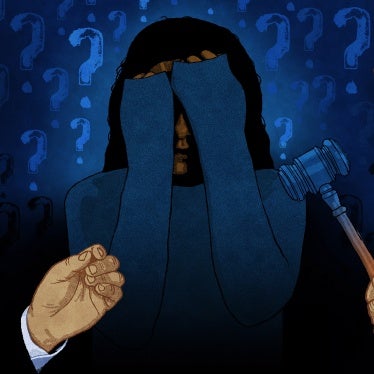When the White House announced its support for ending the use of “conversion therapies” for lesbian, gay, bisexual and transgender people under 18, it sent a supportive message to young people who identify as LGBT or are questioning their gender or sexuality. Therapies that aim to “cure” or “convert” gay or transgender people have failed to produce evidence that they work or are safe; indeed, there is wide consensus among professionals that these therapies are ineffective and harmful. The anti-LGBT animus inspiring these practices creates stigma.
As they take steps to end such practices, however, legislators and practitioners must be careful not to encroach on effective therapy options for young people who are exploring the complex matters of gender and sexuality.
Children have the right to discover and be accepted for who they are. Growing up healthy sometimes involves changing one’s mind, and children may need to talk honestly about this possibility with a therapist. Bans could have the unintended consequence of deterring therapists from engaging with children who have questions or even of ensnaring good therapists when they do.
According to the Centers for Disease Control and Prevention, suicide is the third-leading cause of death in the United States among those age 10 to 14, and the second-leading from age 15 to 24. Gay, lesbian and bisexual youth are two to five times as likely as their straight peers to attempt suicide, and young transgender people are also at heightened risk. Prejudice is a leading factor.
The American Psychiatric Association warns that conversion therapies can lead to depression, anxiety and self-destructive behavior — and notes that“therapist alignment with societal prejudices against homosexuality may reinforce self-hatred already experienced by the patient.” But supportive psychotherapy can be a crucial resource. The American Medical Association attributes emotional disturbances felt by LGBT people to a “sense of alienation in an unaccepting environment” and calls for affirmative psychotherapy to help people cope and develop.
President Obama’s embrace of this issue backs up these professional perspectives with governmental authority, and he has left it up to states to take action while highlighting anti-conversion therapy legislation such as bans in California and New Jersey. However, legislative bans may not be the best solution to this problem.
Psychotherapy is inherently private and complex, and for some individuals, sexual orientation and gender identity can and do evolve in the course of legitimate treatment. The American Academy of Pediatrics, while condemning therapy directed at changing sexual orientation, makes the important point that “confusion about sexual orientation is not unusual during adolescence” and calls for counseling to be available to young people who experience uncertainty. In recent years increasing numbers of children and adolescents report viewing themselves as “genderqueer” — that is, not fitting into binary male-female categories. Good treatment in such cases frequently involves embracing flexibility to help patients discover what feels most authentic to them.
Rather than legislative bans, conversion therapies should be addressed by state licensing boards and similar regulatory bodies. For mental health practitioners — psychiatrists, psychologists, school counselors and social workers alike — licensure guidelines are designed and enforced by these regulatory bodies, using professional guidelines that already condemn such therapies. Consumer protection guidelines also rule out acts of deception. Put plainly, therapists can’t claim conversion methods work; if they do, they could be fined or lose their license.
Mental-health practitioners have an important role to play in distinguishing between good and bad practice, and children have the right to speak up both in seeking health care and in policymaking processes that affect them. Childhood and adolescence are crucial times for development, including of sexual orientation and gender identity. Adolescence can also be a particularly turbulent period for mental health as the body develops and social environments and expectations shift rapidly. During this vital stage, youth need information, support and safe spaces to ask questions. Mental health professionals need the latitude to help them.
The White House’s strides on LGBT rights are notable, and discussion of strategies for ending conversion therapies is welcome. Trauma-inducing practices should not be allowed to masquerade as therapy, but we shouldn’t think of blanket bans as elixirs. To strike the right balance, it is vital to include practitioners as well as youth in the dialogue — so that they have a say in policies that will impact their rights to information, health and integrity.








